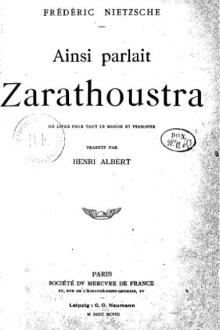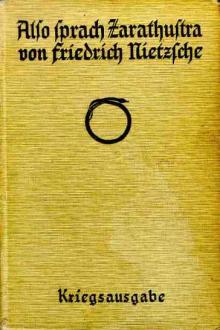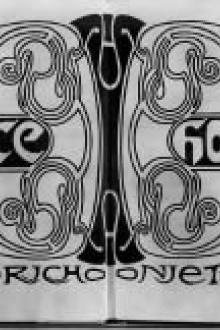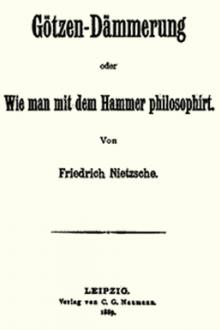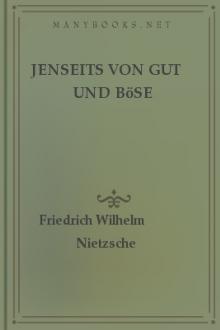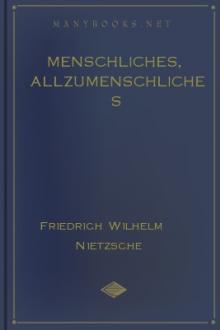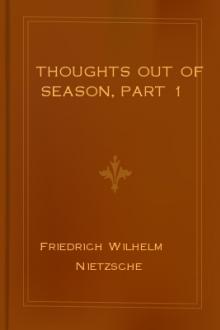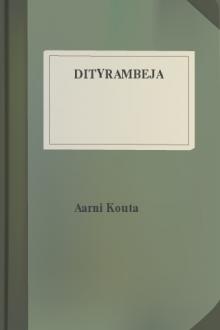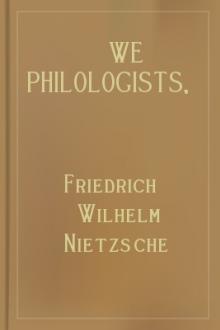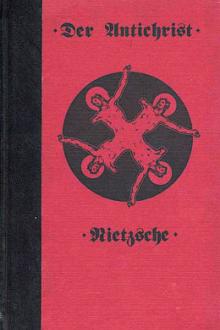Homer and Classical Philology
Book Excerpt
Let us imagine ourselves as living in the time of Pisistratus: the word "Homer" then comprehended an abundance of dissimilarities. What was meant by "Homer" at that time? It is evident that that generation found itself unable to grasp a personality and the limits of its manifestations. Homer had now become of small consequence. And then we meet with the weighty question: What lies before this period? Has Homer's personality, because it cannot be grasped, gradually faded away into an empty name? Or had all the Homeric poems been gathered together in a body, the nation naively representing itself by the figure of Homer? _Was the person created out of a conception, or the conception out of a person?_ This is the real "Homeric question," the central problem of the personality.
The difficulty of answering this question, however, is increased when we seek a reply in another direction
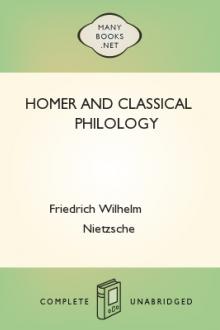
 Free Download
Free Download























